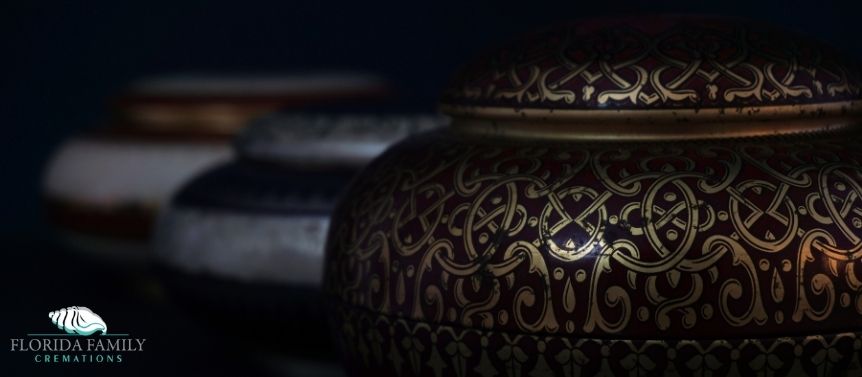Cremation urns for ashes, also known as funerary urns, have been utilized for thousands of years. But how did these vessels get incorporated into our cremation customs? Let’s find out.
History of Cremation Urns for Ashes During Various Epoch
The earliest sightings of cremated remains were in China, whereby urns dating around 7000 BC were found in a Jiahu site. These cremation urns were used to store children’s ashes.
As for cremation, the first sighting was in Europe, in Western Russia. Experts believe this practice may have begun in the Stone age around 3000 BC. Cremation urns for ashes have been discovered among other artifacts, and they generally consist of pottery urns.
Bronze Age
In the Bronze Age, cremation spread to North America plus Europe in Northern Italy and Portugal. Archaeologists also discovered cremation cemeteries with urns. For instance, the discovery of urn burials by Sir Thomas Browne in England prompted him to undertake a study in 1658 titled Hydriotaphia or Urn Burial.
Mycenaean Age
As for the Mycenean age, cremation became a common practice in Greece due to its hygienic nature of dealing with human remains. At that time, the country was in battle. Thus, the practice of cremation for military members who died in battle felt right. The communities would perform elaborate burial practices that also involved the use of cremation urns.
Later the Romans also adopted this practice around 600 BC. Soon, cremation became the most preferred disposition method that authorities gave out a decree banning cremation within Rome. It’s worth keeping in mind that, during this time, the citizens would use elaborate urns, the Lekythos vases. They also kept these urns in columbariums.
Early Christianity
Early Christians and Jews discouraged cremation. The latter generally preferred traditional entombment. As for the Christians, the disapproval was because it did not match with their Judaism beliefs. Moreover, they considered cremation to be a pagan practice that involved fire sacrifice.
Modern Age
The modern cremation resulted from the 1873 Vienna Exposition, when Brunetti, an Italian professor, included cremation urns for ashes in his display. In the following year, Sir Henry Thompson, Queen Victoria’s surgeon, established the Cremation Society of England. It wasn’t until 1876 when Dr. Julius LeMoyne introduced the first crematory in Pennsylvania that cremation became widespread.
A second one opened in 1884 in the same state. The acceptance of cremation was due to shifting attitudes. By 1900, 20 crematories were used in North America, and about 52 were operating in 1913. It was this broad acceptance of cremation that triggered a demand for funerary urns.
In the later years, cremation became so common that people introduced new customs. For instance, in Europe, the body organs, especially the heart, were placed in cremation urns separate from the body as a symbol of deep affection. This was the case for King Otto of Bavaria, who died in 1916.
Today, cremation outnumbers traditional burials in some countries. For instance, in the U.S., the national average rate went from 34.7 percent in 1960 to 75.44 percent in 2015.
The U.K. and Canada have also seen similar increases. As for contemporary Japan, almost all families practice cremation. Moreover, in areas like Osaka and Tokyo, only cremation is allowed.
Besides its hygiene benefits, several reasons have made cremation a preferred choice of disposition. These include its nature. Plus, with overcrowding in major cities, this practice offers a great alternative to traditional burial. Cremation provides a dignified way to honor a deceased loved one.
At Florida Family Cremations, we’ve helped families give their deceased loved ones a good send-off through our affordable cremation services in Clearwater. Besides direct cremation, we provide veteran’s services, cremation pre-planning, and cremation urns for ashes. If you have any concerns or questions or wish to seek our services, don’t hesitate to call us at (727) 223-5911 today.

